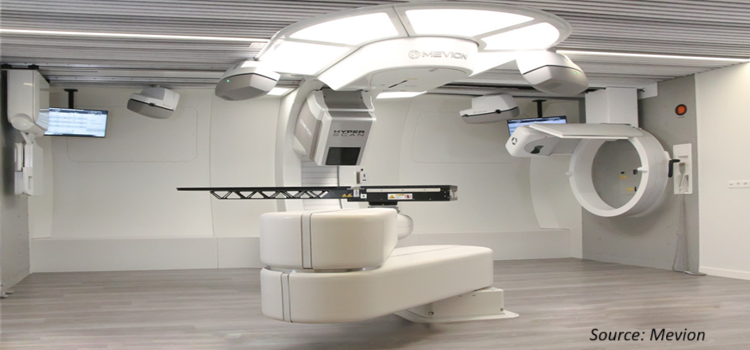
Surgical Robotics Market by Component (Robotic Systems, Instruments & Accessories, Services), Surgery Type (Gynecology Surgery, Urology Surgery, Gynecological Surgery, Neurosurgery, Orthopedic Surgery, General Surgery, Other), End User (Hospitals, Ambulatory Surgical Centers) - Global Opportunity Analysis and Industry Forecast, 2020 – 2030
Industry: Healthcare | Publish Date: 28-Nov-2024 | No of Pages: 239 | No. of Tables: 126 | No. of Figures: 96 | Format: PDF | Report Code : HC34
US Tariff Impact on Surgical Robotics Market
Trump Tariffs Are Reshaping Global Business
Market Definition
The global Surgical Robotics Market size was valued at USD 66.02 billion in 2019 and is predicted to reach USD 119.67 billion by 2030 with a CAGR of 7.4% from 2020-2030.
Surgical Robotics led to minimally invasive procedures with high precision, minimal incision, reduced blood loss, lesser pain, and quicker healing time, as compared to traditional surgical procedures. In robotically assisted surgeries, the surgeon controls the overall surgical procedure by manipulating the self-powered, computer-aided robot, which comprises miniature surgical instruments mounted on its robotic arms.
Surgical robots are commonly used in minimally invasive surgery, remote surgery, and unmanned surgery. The increasing commercialization of surgical robots consequently propagates the growth of the global market.
Market Dynamics and Trends
The increasing burden of target diseases, and the growing adoption of surgical robots in conducting surgeries, had augmented the market growth in the past few years, and it tends to create lucrative opportunities for the growth of the global surgical robotics market.
Furthermore, factors such as growing preferences towards minimally invasive surgeries offering high success rates, faster patient recovery, reduced transfusions, and shorter hospital-stay, are expected to propel the global surgical robotics market growth.
However, high-cost treatments, and risk-factor associated with robotically-assisted surgeries, are the limiting factors hampering the growth of the global surgical robotics market.
Since the year 2000 that Intuitive Surgical Inc., received the FDA approval for its ‘da Vinci Surgical System,’ it had completed over 5 million surgeries in the year 2018, through more than 4,500 surgical robots sold by the company globally. The rising number of FDA approvals granted to the innovations of key players, increasing investments in R&D activities, and advancements in product technologies, are to pave new avenues for the growth of the global market.
Market Segmentations and Scope of the Study
The global surgical robotics market share has been analyzed based on components, surgery type, end user, and geography. Based on component, the market is segmented into robotic systems, instruments & accessories, and services. Based on surgery type, the market is divided into gynecology surgery, urology surgery, neurosurgery, orthopedic surgery, general surgery, and other surgeries. By end user, the market is segmented into hospitals and ambulatory surgical centers. Geographic breakdown and analysis of each of the previously mentioned segments include regions comprising Europe, North America, Asia-Pacific, and RoW.
Geographical Analysis
North America region dominated the global surgical robotics market in the past, and is expected to maintain this trend throughout the forecast period, accounting for the major market share. This is attributed to higher investments by regulatory bodies to adopt advanced surgical robotics systems, well-established healthcare infrastructures with technologically advanced healthcare amenities, and the presence of key market players in this region.
Asia Pacific region is expected to demonstrate a substantial growth in the global market, growing with the highest CAGR values throughout the forecast period. This is due to an increase in medical tourism, favorable reimbursement policies, and untapped market opportunities offered by the emerging economies present in this region.
Competitive Landscape
The surgical robotics industry, which is highly competitive, consists of various market players that include Medtronic plc, Smith & Nephew Plc. (Blue Belt Technologies, Inc.), Intuitive Surgical, Inc., Auris Surgical Robotics, Inc. (Hansen Medical Inc.), Stryker Corporation (MAKO Surgical Corp.), Renishaw plc, KUKA AG, Mazor Robotics, Zimmer Biomet Holdings Inc. and THINK Surgical Inc. among others.
Increasing number of approvals by Food and Drug Administration for cutting-edge surgical robotics technologies presented by market players, along with strategies employed by key players such as acquisition, collaboration and capacity expansion in order to gain stronger market position, is leading the global surgical robotics market to new heights.
For instance, in February 2019, Auris Surgical Robotics, Inc., one of the major players in the global market, was acquired by Johnson & Johnson in 3.5 billion USD, with the strategy to reinforce and expand J&J’s surgical robotics program.
In November 2019, Stryker Corporation one of the major players in the global surgical robotics market, announced that it has received FDA approval for its ‘SAHARA Lateral’ the first-ever 3D expandable interbody system that features lamellar 3D titanium technology, allowing surgeons in achieving up-to 30 degrees of sagittal spinal correction in skeletally mature patients.
In February 2020, THINK Surgical, Inc. one of the major players in the global market announced that INOV8 Surgical is the first-ever healthcare facility to acquire its ‘TSolution One active robot system,’ for total knee replacement surgical procedures, since this technology received FDA approval in the US. The robotic system comprises of two explicit innovations assisting total joint replacement surgeries that are TPLAN-a 3D pre-surgical planning workstation, and TCAT, the active robot.
Key Benefits
-
The surgical robotics market report provides the quantitative analysis of the current market and estimations through 2020-2030 that assists in identifying the prevailing market opportunities to capitalize on.
-
The study comprises a deep dive analysis of the trend including the current and future trends for depicting the prevalent investment pockets in the market.
-
The report provides detailed information related to key drivers, restraints and opportunities and their impact on the market.
-
The report incorporates competitive analysis of the market players along with their market share in the global market.
-
The SWOT analysis and Porters Five Forces model is elaborated in the study of the market.
-
Value chain analysis in the surgical robotics market study provides a clear picture of the stakeholders’ roles.
Surgical Robotics Market Key Segments
By Component
-
Robotic Systems
-
Instruments & Accessories
-
Services
By Surgery Type
-
Gynecology Surgery
-
Urology Surgery
-
Gynecological Surgery
-
Neurosurgery
-
Orthopedic Surgery
-
General Surgery
-
Other
By End User
-
Hospitals
-
Ambulatory Surgical Centers
By Geography
-
North America
-
U.S.
-
Canada
-
Mexico
-
-
Europe
-
UK
-
Germany
-
France
-
Rest of Europe
-
-
Asia-Pacific
-
China
-
India
-
Japan
-
Australia
-
Rest of Asia-Pacific
-
-
RoW
-
Latin America
-
Middle East
-
Africa
-
Key Players:
-
Medtronic plc
-
Smith & Nephew Plc. (Blue Belt Technologies, Inc.)
-
Intuitive Surgical, Inc.
-
Auris Surgical Robotics, Inc. (Hansen Medical Inc.)
-
Stryker Corporation (MAKO Surgical Corp.)
-
Renishaw plc
-
KUKA AG
-
Mazor Robotics
-
Zimmer Biomet Holdings Inc.
-
THINK Surgical Inc.
Report Scope and Segmentation
|
Parameters |
Details |
|
Analysis Period |
2019–2030 |
|
Base Year Considered |
2020 |
|
Forecast Period |
2020–2030 |
|
Market Size Estimation |
Billion (USD) |
|
Market Segmentation |
By Component (Systems, Accessories, Services) By Surgery Type (Gynecology Surgery, Urology Surgery, Neurosurgery, Orthopedic Surgery, General Surgery, Other Surgeries) |
|
Geographical Segmentation |
North America (U.S., Canada, Mexico) Europe (UK, Germany, France, Rest of Europe), Asia-Pacific (China, Japan, India, Australia, Rest of APAC), Rest of the World (Latin America, Middle East, Africa) |
|
Companies Profiled |
Medtronic plc, Smith & Nephew Plc. (Blue Belt Technologies, Inc.), Intuitive Surgical, Inc., Auris Surgical Robotics, Inc. (Hansen Medical Inc.), Stryker Corporation (MAKO Surgical Corp.), Renishaw plc, KUKA AG, Mazor Robotics, Zimmer Biomet Holdings Inc. and THINK Surgical Inc. |

















 Speak to Our Analyst
Speak to Our Analyst





















